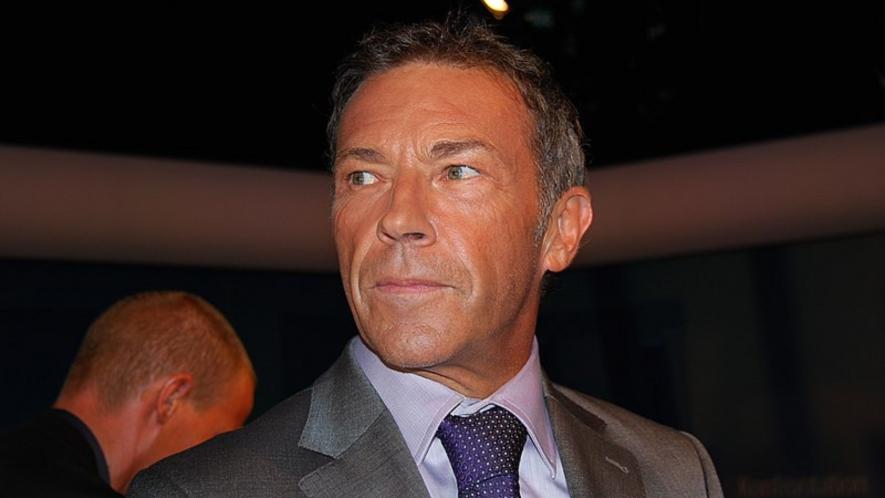Jorg Haider to Geert Wilders: Far-right Normalised in Europe

Jorg Haider. Image Courtesy: Wikimedia Commons
Jorg Haider, a far-right Austrian politician who died in 2008, is largely forgotten. It is also forgotten that merely two decades ago, he was considered a very dangerous man in Europe, whose ascent to power had prompted rare European Union unity aimed to thwart his ambitions.
Twice elected as governor of the southern state of Carinthia, Haider—who opposed immigration and was critical of Islam and Muslims—once praised the Nazi regime’s “employment policies”.
His Freedom Party of Austria allied with another party, the OVP, which allowed Haider to become the country’s chancellor. But the possibility of a ‘right-wing extremist’ ruling a European Union member country prompted the other 14 members to join hands punitively against Australia, putting Haider out of the chancellorship race.
The European Union stuck by the 1997 Treaty of Amsterdam principles and emphasised that nobody would be allowed to “breach them”.
Many European countries threatened to recall envoys from Austria, and some said that Austria could be shunted out of the union if the need arose. The Belgian foreign minister at the time said, “Europe can very well do without Austria. We don’t need it.
After much water has flown down the Thames, the Rheins, the Danubes and all other rivers of Europe, the world has Geert Wilders in the Netherlands, a “political earthquake”, whom some consider more extreme and fanatical than Haider. But Wilders’ views on immigration and Islam cause no similar outrage in European capitals today.
Wilders’s party, which promised to ban mosques and compared the Quran with the infamous Mein Kampf, has won 37 seats in a 150-member Parliament. It is now the number one party in the country’s parliament.
In his book, Marked for Death: Islam’s War against the West and Me, Wilders puts in black and white his extreme views, refusing to accept Islam as a ‘religion’ and calling it a totalitarian ideology instead. He writes that Islam aims to “conquer the West” and that a “free society should not grant freedom to those who want to destroy it. Every halal shop, every mosque, every Islamic school, and every burka is regarded by Islam as a step toward the ultimate goal of our submission… we must close down all Islamic schools, for they are totalitarian institutions where young children are indoctrinated into an ideology of violence and hatred. We must also close down all radical mosques and forbid the construction of new mosques, which Islam regards as symbols of its triumph. And we must ban the burka—people’s faces should not be hidden in society, for it is our faces that give us our identity and our fundamental means of communication with others,” he writes.
During the election campaign, he promised to focus on curbing immigration if elected and sugarcoated his anti-Islam rhetoric with concerns about the cost of living crisis. The ‘humanisation’ of an Islamophobe accompanied his meteoric ascent. A leading channel in the Netherlands tried to present Wilders’ softer side before the elections—apparently, he loves cats! Better call him Milders, not Wilders, a media outlet quipped.
For the Netherlands, a north-western European nation, the emergence of a hard right once seemed impossible. But as a headline published in The Nation notes, “The Sensible Dutch Take a Sharp Turn to the Right’.
Not long ago, the largest bank in the Netherlands, ABN Amro NV, had resisted Haider’s ascendance and declared it would freeze its offer to help finance a controversial child support programme in his home province of Carinthia.
Wilders’ emergence as a key political actor signifies the long distance that once-liberal countries have travelled in Europe. The world confronts a changed Netherlands, better called ‘New Netherlands’, if we borrow a phrase from the largest democracy.
Indeed, if Haider’s possible ascent led to unity based on principles in the European Union, Wilders is Prince Charming to many.
No doubt, Haider’s trajectory to power was in a radically different ambience. In Haider’s time, the European Union resisted the shift towards a right-wing anti-immigrant agenda, but in less than a quarter century, even more extreme views are being normalised. The many congratulatory messages Wilders has received, including from other right-wing European governments, testify to the changed scenario. Viktor Orban, Hungary’s Prime Minister, said on X (formerly Twitter), “The winds of change are here!” Italy’s Deputy Prime Minister Matteo Salvini said on X: “Congratulations to our friend @geertwilderspvv.”
A new Europe is emerging, ready to give space to ethnonationalism and exclusivist agendas. After failing thrice, Marine Le Pen, France’s far-right politician, is moving towards a goal for the presidency in 2027. Alternative For Deutschland (AfD) has received electoral success in Germany. In Slovakia, populist Fico has announced a coalition with the far-right to form the next government.
Far-right parties are steadily climbing, shaping the mainstream to reflect their nativist and populist agendas and occupying ministerial roles in coalition governments.
Having travelled this far, perhaps Europe might like to obliterate how and why it once stalled Haider’s ascent. The Guardian tells us, “If everyone who voted in the election had been under 35, Geert Wilders, the far-right populist whose Party for Freedom (PVV) shocked Europe by winning the most parliamentary seats, would have won even more.”
The paper points out that Le Pen won 39% of votes from people aged 18-24 and 49% from those aged 25-34. In Italy, Giorgia Meloni’s Brothers of Italy was the largest party among under-35s, with 22%.
The white, male, non-graduate and older demographic of the radical-right voter is changing. Studies tell us that “in several countries, support for the far right is growing fastest among younger voters,” The Guardian pointed out.
But the youth has not suddenly become exclusivist. There is a growing housing and healthcare crisis, and life is increasingly precarious without regular jobs. Slogans that promise to ‘make the country great again’ are bound to appeal to younger voters.
An editorial in The Hindu newspaper warns that rising ethnonationalism is a wake-up call for the establishment parties in the West. “Establishment parties should have a clear economic agenda and political vision to arrest the rising tide of far-right politics, which echoes Europe’s dangerous and not-so-distant past,” notes the paper.
But a more discomforting question would be whether these parties have contributed to the emergence of the far right. For example, when the election results were announced in the Netherlands, the mainstream came under criticism.
Writing in The Wire, Aurelien Mondon, a senior lecturer at the University of Bath, notes, “We cannot pretend to stand against the far right while referring to its politics as ‘legitimate concerns’. We must stand unequivocally by and be in service of every one of the communities at the sharp end of oppression.”
This applies in South Asia, too, where parties have repeatedly demonstrated political naiveté by aligning with retrograde forces, such as under the name of “fighting corruption”. It has, ultimately, facilitated the ascent of the right to the echelons of power.
The author is an independent journalist. The views are personal.
Get the latest reports & analysis with people's perspective on Protests, movements & deep analytical videos, discussions of the current affairs in your Telegram app. Subscribe to NewsClick's Telegram channel & get Real-Time updates on stories, as they get published on our website.



















